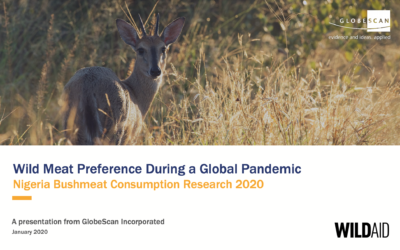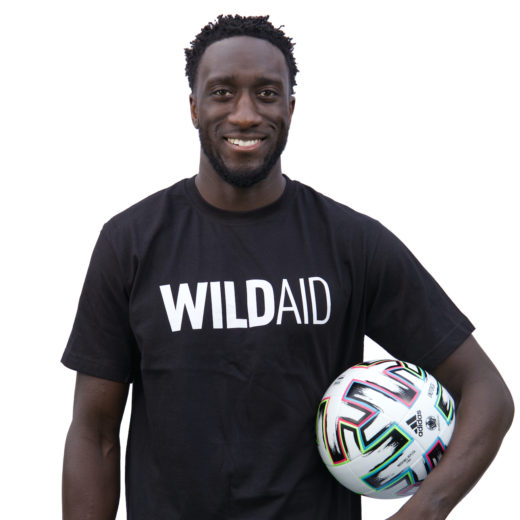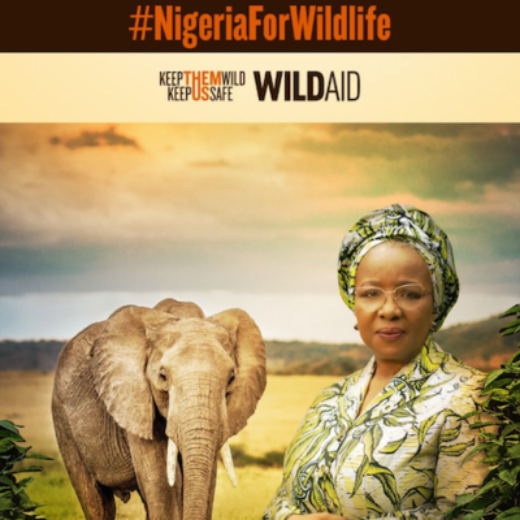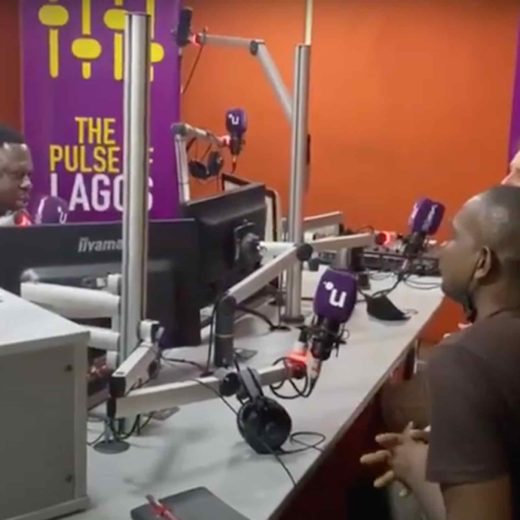
Blog originally published on GlobeScan on 2/9/2021.
Human contact with wild animals increases the risk of zoonotic disease transmission, and COVID-19, which is believed to have originated from the consumption of wild animals, has shown the world just how serious this can be. However, this is not the first time Nigeria has suffered from past outbreaks of zoonotic diseases with HIV, Ebola and Lassa fever having all affected the country.
To establish the level of urban bushmeat consumption in Nigeria and investigate the effects that COVID-19 is having on people’s desire to eat wild animals, GlobeScan and WildAid conducted a study in October 2020, among 2,000 urban Nigerians across four major cities. The study results provide detailed insights into the purchase and consumption of bushmeat in the country, the effects of wildlife laws and COVID-19, and the possible ways in which we can change consumer perceptions and behavior towards species threatened by wildlife trade.
WildAid will use these insights to launch a demand reduction campaign in Nigeria in 2021 to help lower the risk of future disease transmission and to protect the country’s wildlife.
On February 9, 2021, GlobeScan and WildAid hosted a webinar to learn about this study and to discuss the best way to use these findings to protect Nigeria’s wildlife.
We were excited to have the following panelists join us to share their valuable insights:
- Peter Knights, CEO at WildAid
- Linus Unah, West African Representative at WildAid
- Wander Meijer, Director at GlobeScan
- Dr. Yahya Disu, Head of Risk Communications at the Nigeria Centre for Disease Control
Stay in touch and get the latest WildAid updates.
SIGN UPAbout WildAid
WildAid is a non-profit organization with a mission to protect wildlife from illegal trade and other imminent threats. While most wildlife conservation groups focus on protecting animals from poaching, WildAid primarily works to reduce global consumption of wildlife products such as elephant ivory, rhino horn and shark fin soup. With an unrivaled portfolio of celebrity ambassadors and a global network of media partners, WildAid leverages more than $308 million in annual pro-bono media support with a simple message: When the Buying Stops, the Killing Can Too.
Journalists on deadline may email communications@wildaid.org


